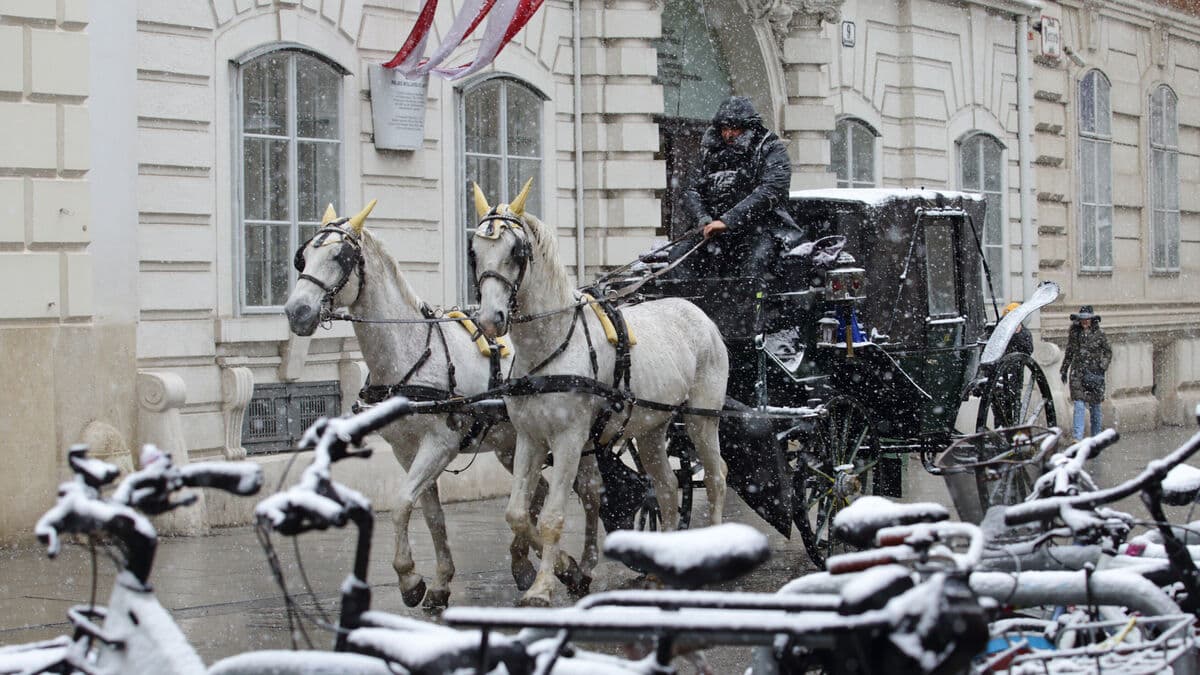The Belarusians are terrified after four years of repression, notes opposition leader Svetlana Tichanovskaja, who challenged Lukashenko in the election five years ago and now works in exile, to AFP.
In 2020, Lukashenko's declaration of victory was followed by a massive popular protest wave that resulted in brutal crackdowns and arrests. Now, Tichanovskaja has warned her compatriots against taking to the streets in connection with the "pseudo-election".
I do not want people to sacrifice their freedom for nothing now. I want the people to save themselves for the real moment, it will come and then they must be ready, she says.
Over 30 years
It was not self-evident that teacher and interpreter Tichanovskaja would take her husband Sergey Tichanovskiy's place as Lukashenko's political challenger in 2020. But she felt she had no choice after he was arrested and banned from running an election campaign. Her husband has been sentenced to 18 years in prison and is said to have had no contact with his family since 2023.
Belarus under Aleksandr Lukashenko has been described as Europe's most dictatorial regime. The mustachioed and often military-uniformed 70-year-old has lived in the former Soviet state's presidential palace since 1994.
Over the years, he has strengthened his iron grip on administration, media, and courts.
Furthermore, he has increasingly aligned himself with Russia's Vladimir Putin by supporting his colleague in the war of aggression against Ukraine. In 2023, Lukashenko gave Putin permission to deploy nuclear weapons in Belarus, which is seen as an escalated threat to Ukraine and neighboring NATO countries.
Discredited election?
Sunday's election is about a seventh five-year term for tractor enthusiast Lukashenko – who often emphasizes that he stands for stability. The dictator speaks with pride about the state-controlled economy and likes to visit factories, according to media.
But the EU has already dismissed the election as a "bluff" and urged the international community not to recognize the results. The Western world has repeatedly imposed sanctions on Belarus for its oppression of the population and support for Russia.
In today's Belarus, there is no free party system. A few more people have been allowed to stand in the election, but they pose no real threat to Lukashenko. The dictator has dismissed the idea of election debates.
It's not the right time to debate, he says according to AFP.
Prior to the election, Lukashenko has pardoned 32 political prisoners, but simultaneously, more dissidents have been arrested. Over 1,200 people are estimated by human rights organizations to be imprisoned for regime criticism, and countless others are harassed or persecuted for their opinions.
Belarus is barely half the size of Sweden and has a population of over 9 million people.
A century ago, Belarus became part of the Soviet Union. After gaining independence in the early 1990s, the country has remained closely tied to the powerful neighbor Russia.
The country is ruled by the authoritarian Aleksandr Lukashenko. He won the presidential election in 1994 and has since strengthened his power. He has often been referred to as "Europe's last dictator".
When Russia launched its full-scale invasion of Ukraine in 2022, the troops also departed from Belarus, which has a long border with Ukraine.
After the presidential election in 2020, Lukashenko declared himself the winner again. According to the official figures, he received 80 percent of the votes, but the election result was dismissed by the opposition and large parts of the international community. During the second half of 2020, hundreds of thousands of Belarusians protested on the streets.
The extensive democratic movement was crushed with the help of Russia. Up to 300,000 fled when opposition leaders were forced to choose between leaving Belarus or being imprisoned. Top politician Svetlana Tichanovskaja is a leading figure in a democratic coordination council that operates in exile, mainly from Lithuania and Poland.
Sources: UN, Country Guide, AFP






